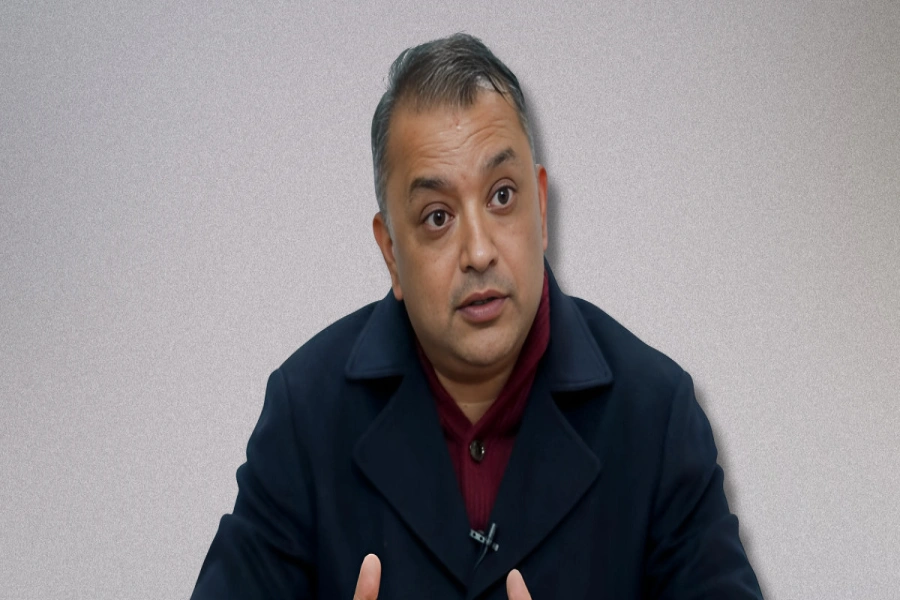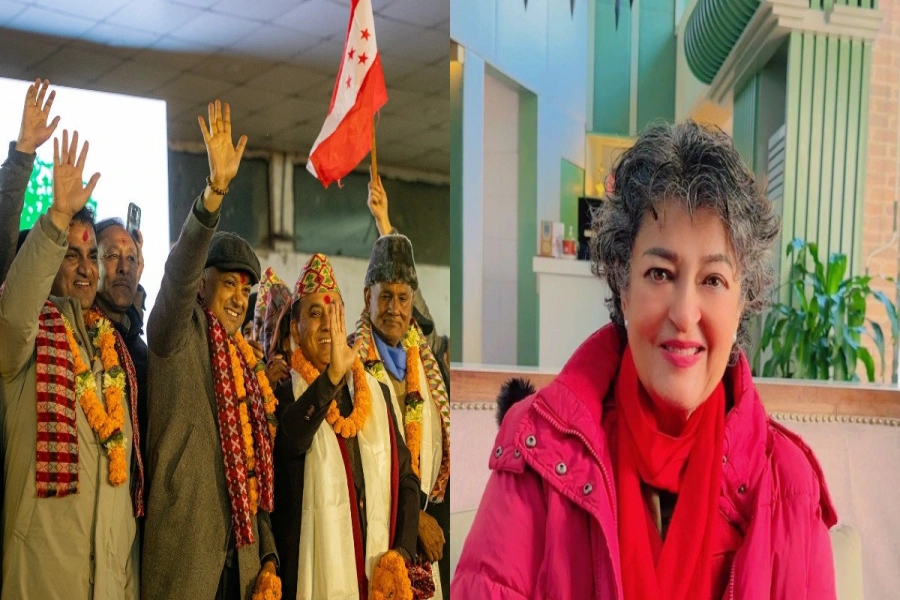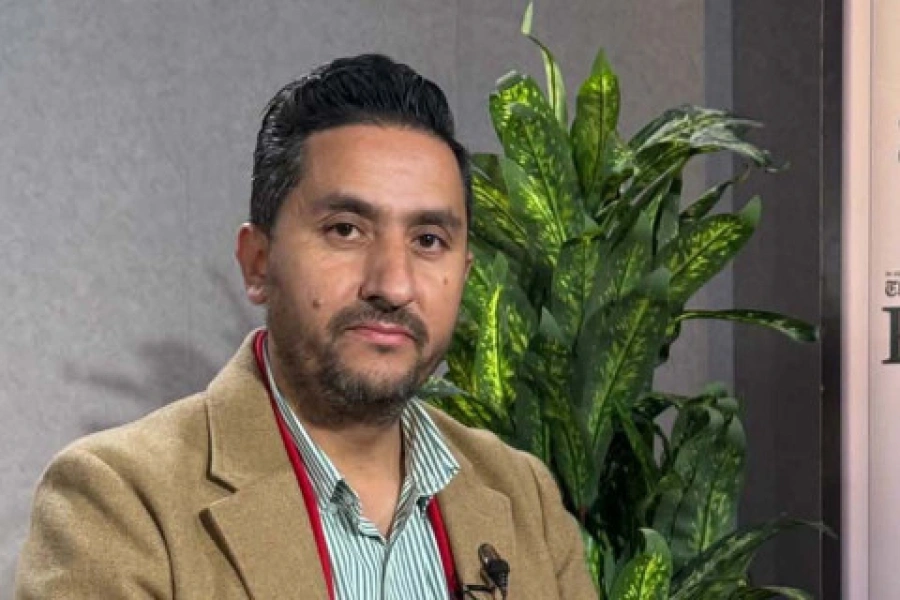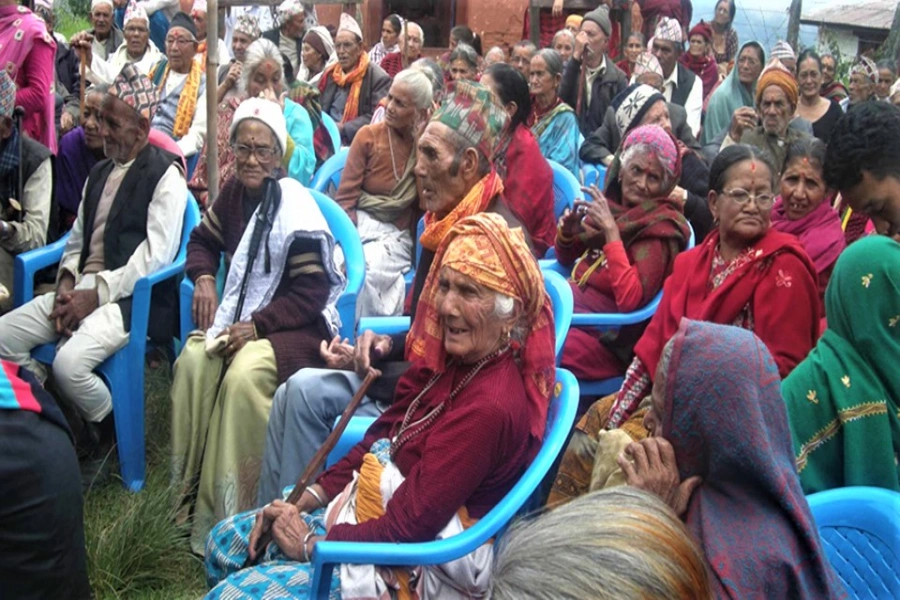JANAKPUR, April 22: Government spends millions of rupees in admission campaigns every new academic session to increase student enrollments. However, stakeholders complain that the program is not reaching out to the target groups.
“My 12-year-old son goes to work. He no more goes to school. We are poor family, how can we afford to send all children to school!” says Kamlesh Kapar, a mason from Simradi village, Sailaba Rural Municipality-10. “I had sent him to school earlier, but now it's time for him to work and earn instead,” he added.
According to Kapar, the ultimate objective of being educated is for getting a job and argues, “if they start earning from much earlier age, it's rather a good thing.”
“It is only for well-off families that education is important till later. For the people like us, it is okay to drop out midway. Even if I say it is important to study further, how would I afford that?” he asked.
Kapar has three sons. While the 12-year-old earns by working in construction site, his 10 and six-year-old sons go to school. They have not joined work, because they are underage, the father said.
“I wanted to send even my second son to work. He would go willingly. But then he is just 10. Similarly, my youngest son is only six, he goes to nursery grade,” he informed.
Chepang students go to school barefoot in freezing cold

Kapar does not feel whatever he is doing is at odds. In his village, children do work. They run mobile shops and children have been working in other fields as well.
“Everyone works. Few children go to school. They go to school only till primary level,” Kapar said.
The government has been running several kinds of admission campaign in the district since the last few weeks. In his locality, students come to schools from far away. Still there are kids in the locality whose house is near to the school but they hardly go to school.
For instance, there are many children out of school in Simaragadhi though there are over dozen of community schools there. Those who are well off send their kids to private schools anyway. Community schools are often the choice of only poor families. But for the people like Kapar, it makes little difference no matter what plan and policies the government brings. He is firm that it is more important to work rather than education.
“Education does not feed you. You need money to survive and for it, you need to work. Our boys work and that is fine,” he says.
Education does not feed you. You need money to survive and for it, you need to work. Our boys work and that is fine. -Kamlesh Kapar, A dalit from Sailaba Rural Municipality-10
Situation of Musahar kids in Barkurwa is no different. Just nearby their community is the oldest school of the town - Farkirchand Gami Higher Secondary School. Students come to the school from Sailaba, Raghunathpur, Paterwa, Barmajhiya and Makhnaha, among other areas. They walk a long distance to get to the popular school. However, spotting school going Musahar kids is very challenging.
"Our children don't go to school for several reasons. One is poverty, other is our caste," Kapar, who is considered Dalit.
He stated that Dalits in Tarai 'have a different life'. Their children are not as lucky as others to receive and complete education, he argued.
10-year-old, Satyanarayan Kapar, from another family in the community runs a small shop at the crossroad. He sells water bottles, biscuits, chips, tobacco and other things at the shop.
"I make between Rs 300 to Rs 500 in a day," he boasted. "Sometimes, even more depending on situation," he added.
He has no memory of his parents telling him to go to school. Rather, they bless him for earning good money. "I manage everything on my own. I bring stuffs to sell on my own. I wake up early morning to open the shop," he narrated.
He has not completed even elementary level and that is not a problem he says. "After all, what you need is money for survival. If I go to school, who will come and work here? So, I'm okay with all this," he said firmly.
His uncle Ramchandra Kapar, has just been back from Qatar after working for five years. The father of four children had come back only after one of his sons got ready to replace his post there.
"My eldest son is there now. He is working and earning," said Ramchandra. "Had he been from rich family, he'd go for studies, but we are not that lucky," he added.
According to locals, education programs run by the government have not made any difference in their communities. Poor people are not sending children to school while people who can afford continue to educate their children. So, what is the purpose of the spending in enrollment programs, they question.







































